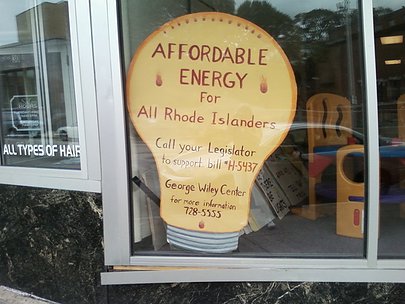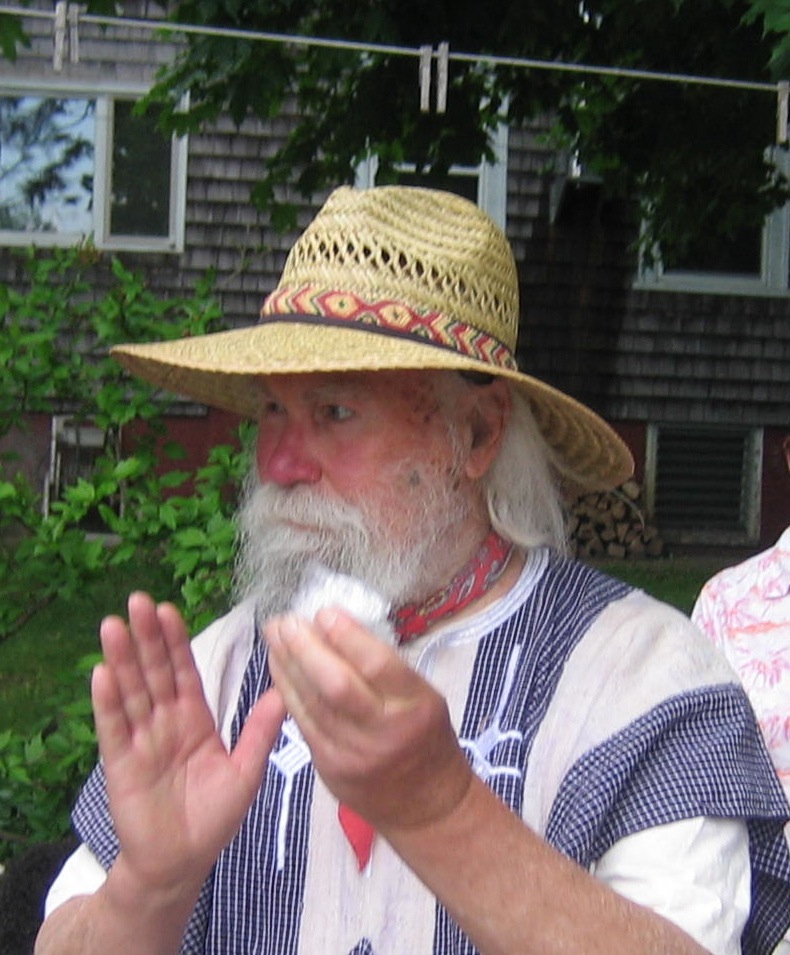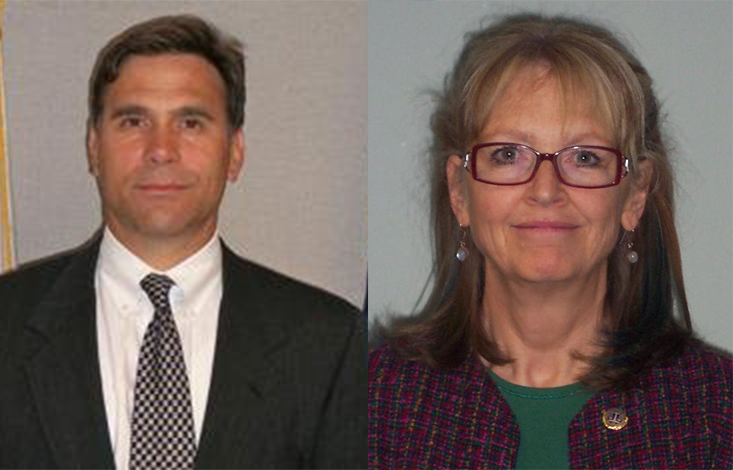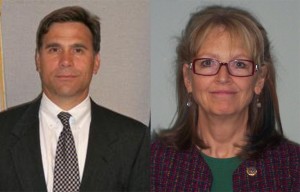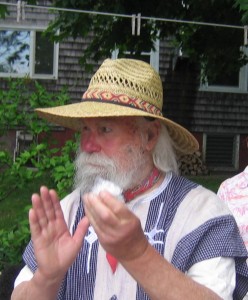 This weekend look for the gathering of friends, Rhode Island College educators, progressives, folkies and family members of the late Richard J. Walton, who come to the Red Bandana Award to pay homage and remember him. With his prominent long white beard and red bandana, decked out in blue jean overalls and wearing a baseball cap, Walton was a dedicated advocate of worker rights and committed to the nurturing of young people as a college professor at Rhode Island College. He gave hundreds of hours of service every month to organizations including Amos House, the George Wiley Center, Providence Niquinhomo Sister City Project, the Green Party, and Stone Soup Folk Arts Foundation.
This weekend look for the gathering of friends, Rhode Island College educators, progressives, folkies and family members of the late Richard J. Walton, who come to the Red Bandana Award to pay homage and remember him. With his prominent long white beard and red bandana, decked out in blue jean overalls and wearing a baseball cap, Walton was a dedicated advocate of worker rights and committed to the nurturing of young people as a college professor at Rhode Island College. He gave hundreds of hours of service every month to organizations including Amos House, the George Wiley Center, Providence Niquinhomo Sister City Project, the Green Party, and Stone Soup Folk Arts Foundation.
The Red Bandana Fund was also created to be a legacy to help sustain Rhode Island’s community of individuals and organizations that embody the lifelong peace and justice ideas of Walton. Through the Red Bandana Fund, an annual financial award will be made to an organization or individual whose work best represents the ideals of peace and social justice that exemplify Walton’s life work.
Stephen Graham, a member of committee organizing the fundraiser, noted that 12 nominations received. “There were many deserving nominations, all of which one could make an excellent argument for the award,” he said. “After much deliberation and agonizing, the Red Bandana Fund decided to give not one but two awards,” noted Stephen Graham, a member of the committee. “Awards will be given to longtime community activist and hell-raiser, Henry Shelton, and the other to the passionate, unrelenting organizing workers called the Providence Student Union (PSU),” he says, noting that their work embodies the spirit and work of Walton, a well-known social activist in the Rhode Island area who died in 2012.
“Richard would have loved the choices,” noted Graham, a very close friend of Walton’s and a retired community activist.
The Red Bandana Fund celebration takes place on Sunday, June 8 at Nick-a-Nees, 75 South Street. In Providence from 4:00 p.m. to 7:00 p.m. The event is open to the public and donations accepted. Shelton, a former Catholic priest and long-time director of the Pawtucket-based George Wiley Center, is known throughout the region for his steadfast commitment to bettering the lives of all Rhode Islanders, especially the poor and disadvantaged. As a longtime advocate for the needy, he has been a fixture on the streets and at the statehouse for decades, advocating for fairness in housing, public transportation, and medical care.
“It is not an understatement to say that Shelton is the conscience of this state and has been for a long, long time,” says Graham, noting that there was no way Shelton could be ignored.
The committee also honored a new generation of young people working to make a better world, added Graham. So, the Red Bandana Fund also recognizes the PSU for its groundbreaking work done in addressing important issues of education in creative and powerful ways. The PSU is an important voice in the debate over the value of high-stakes testing, challenging the NECAP tests as a requirement for graduation, and has forced officials and politicians to address their concerns, he said.
“It is their commitment to grass-roots organizing and social change, at such a young age, that has earned them the recognition and thanks of the Red Bandana Fund and for all those fighting for justice in today’s society,” says Graham. Coming up with a name for Walton’s fundraiser was tied to his unique fashion sense and was the idea of his daughter Cathy Barnard and Richard, her brother. Like most people, Richard had a vivid, visual image of his father, who had long white hair and beard, being known for wearing his trademark worn blue jean overalls, a red bandana and Stone Soup baseball cap. After Walton died his close friends came over to his house and wanted one of his red bandanas to remember him. Thus, the red bandana became the perfect moniker and recognition for the annual fundraiser.
Says Bill Harley, also on the organizing committee, The Red Bandana Fund is a continuation of Walton’s tradition of having an annual birthday bash – usually held the first Sunday in June, to raise money for Amos House & the Providence-Niquinohomo Sister City Project and other progressive causes. Over 24 years, Walton had raised over $40,000 for these favorite charities, attracting hundreds of people each year including the state’s powerful political and media elite to his family compound located at Pawtuxet Cove in Warwick
“We hope all the people who attended Richard’s parties in the past [1988 to 2011] will show up for the event and you can bring your favorite dish for the potluck,” adds Harley.
“This is our second year giving the award,” said Bill Harley, a member of the selection committee. “We chose the awardees from a great list of nominations, and decided to acknowledge both young organizers, and one of our long-time heroes. Too often, the people who are in the trenches working for us don’t get recognized. We hope the Award begins to address that shortcoming.”
According to Graham, “last year’s event was more of a concert and tribute to Walton.” Over 300 people attended the inaugural Red Bandana fundraising event in 2013 at Shea High School, raising more than $11,000 from ticket sales, a silent auction and raffle. At this event, the first recipient, Amos House, received a $1,000, he said. Graham says the well-known nonprofit was chosen because of its very long relationship with Walton. He was a founding board member, serving for over 30 years, being board chair for a number of years. For almost three decades, the homeless advocate spent an overnight shift with the men who lived in the 90-Day Shelter Program each Thursday bringing them milk and cookies. Each Friday morning he would make pancakes and eggs in the soup kitchen for hundreds of men and women who came to eat a hot meal.
As to getting this year’s Red Bandana Fund off the ground, Harley says: “It’s been a year of fits and starts to make this thing work. I believe that the establishment of this award, and the honoring of people on a yearly basis, will help us build a community here that can transform our culture. It’s a little thing down the road, I can envision this award meaning more and more to recipients, and to the community those recipients come from.”
Walton touched people’s lives, Rick Wahlberg, one of the organizers. “Everyone had such an interesting story to tell about Richard,” he stated, noting that the Warwick resident, known as a social activist, educator, humanitarian, very prolific writer, and a co-founder of Pawtucket’s Stone Soup Coffee House “had made everyone feel that they themselves had a very special, close relationship with him.” Like last year’s inaugural event, Wahlberg expects to see many of Walton’s friends at the upcoming June 8th fundraiser. He and others attending will view this event as a “gathering of the clan” since those attending will be Walton’s extended Rhode Island family.
So, block out some time on your busy Sunday. Come to the Red Bandana Fund event to remember our good old friend, Richard Walton, and support his legacy and positive impact in making Rhode Island a better place to live and work. Enjoy the gathering of caring people who come to recognize the advocacy efforts of Shelton and the PSU to carry on Walton’s work.
Spread the word.
Core participants in organizing this year’s Red Bandana Fund include, Bill Harley, Stephen Graham, Jane Falvey, Barbara & Rick Wahlberg. Other participants included Jane Murphy, Jodi Glass, Cathy Barnard and Richard Walton, Jr.
For more information about donating to The Red Bandana Fund, click here.
Herb Weiss, LRI’12, is a Pawtucket-based writer who covers health care, aging, and medical issues. He can be reached at hweissri@aol.com.
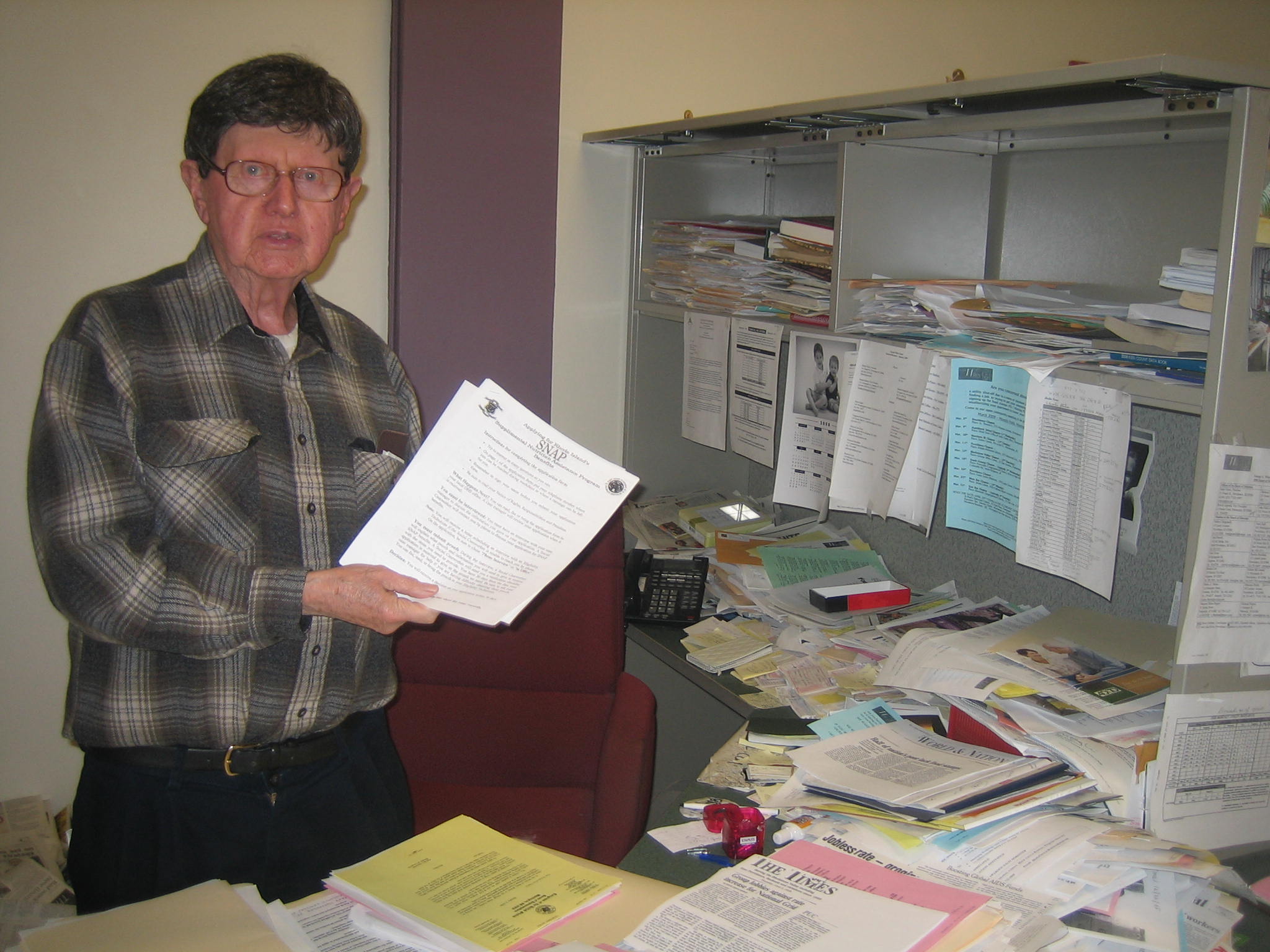 Local legend and community organizer Henry Shelton passed away Wednesday night at his home in Edgewood. He was 86 years old.
Local legend and community organizer Henry Shelton passed away Wednesday night at his home in Edgewood. He was 86 years old.
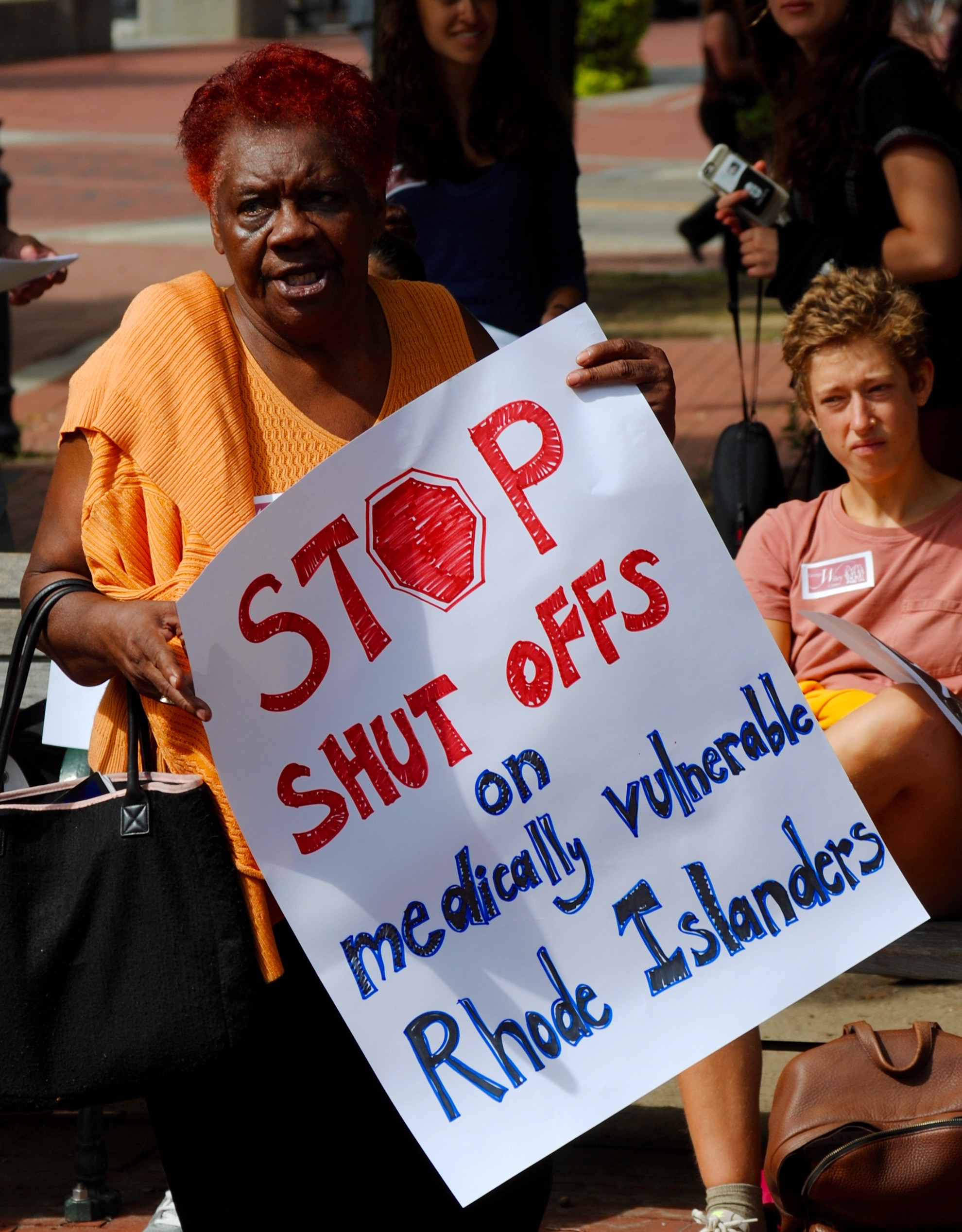
 The health consequences of losing your gas or electric power are actually pretty obvious and pretty logical once you think for a minute about the many things Rhode Islanders use their electric power and gas to do. Electricity runs our light after dark and, with gas powers our heat and heats our hot water, so if you lose power you lose light and heat and hot water. Electricity powers air conditioners and refrigerators, so if you lose power you lose cooling in the summer and the ability to keep anything that needs to cooled – milk and butter and meet and fresh vegetables, but also insulin and many liquid antibiotics. In most of rural RI, in Exeter and Green and Wakefield and Foster and Scituate and Gloucester and West Greenwich and lots of other places, electricity runs the pumps that drive all our water, so when you lose electricity you lose running water all together. And electricity drives many electric devices that help maintain the health and lives of the chronically ill – ventilators and oxygen concentrators, nebulizers, CPAP and BIPAP machines, home dialysis units and intravenous fluid pumps, hospital beds and all sorts of lights, meters and monitors.
The health consequences of losing your gas or electric power are actually pretty obvious and pretty logical once you think for a minute about the many things Rhode Islanders use their electric power and gas to do. Electricity runs our light after dark and, with gas powers our heat and heats our hot water, so if you lose power you lose light and heat and hot water. Electricity powers air conditioners and refrigerators, so if you lose power you lose cooling in the summer and the ability to keep anything that needs to cooled – milk and butter and meet and fresh vegetables, but also insulin and many liquid antibiotics. In most of rural RI, in Exeter and Green and Wakefield and Foster and Scituate and Gloucester and West Greenwich and lots of other places, electricity runs the pumps that drive all our water, so when you lose electricity you lose running water all together. And electricity drives many electric devices that help maintain the health and lives of the chronically ill – ventilators and oxygen concentrators, nebulizers, CPAP and BIPAP machines, home dialysis units and intravenous fluid pumps, hospital beds and all sorts of lights, meters and monitors.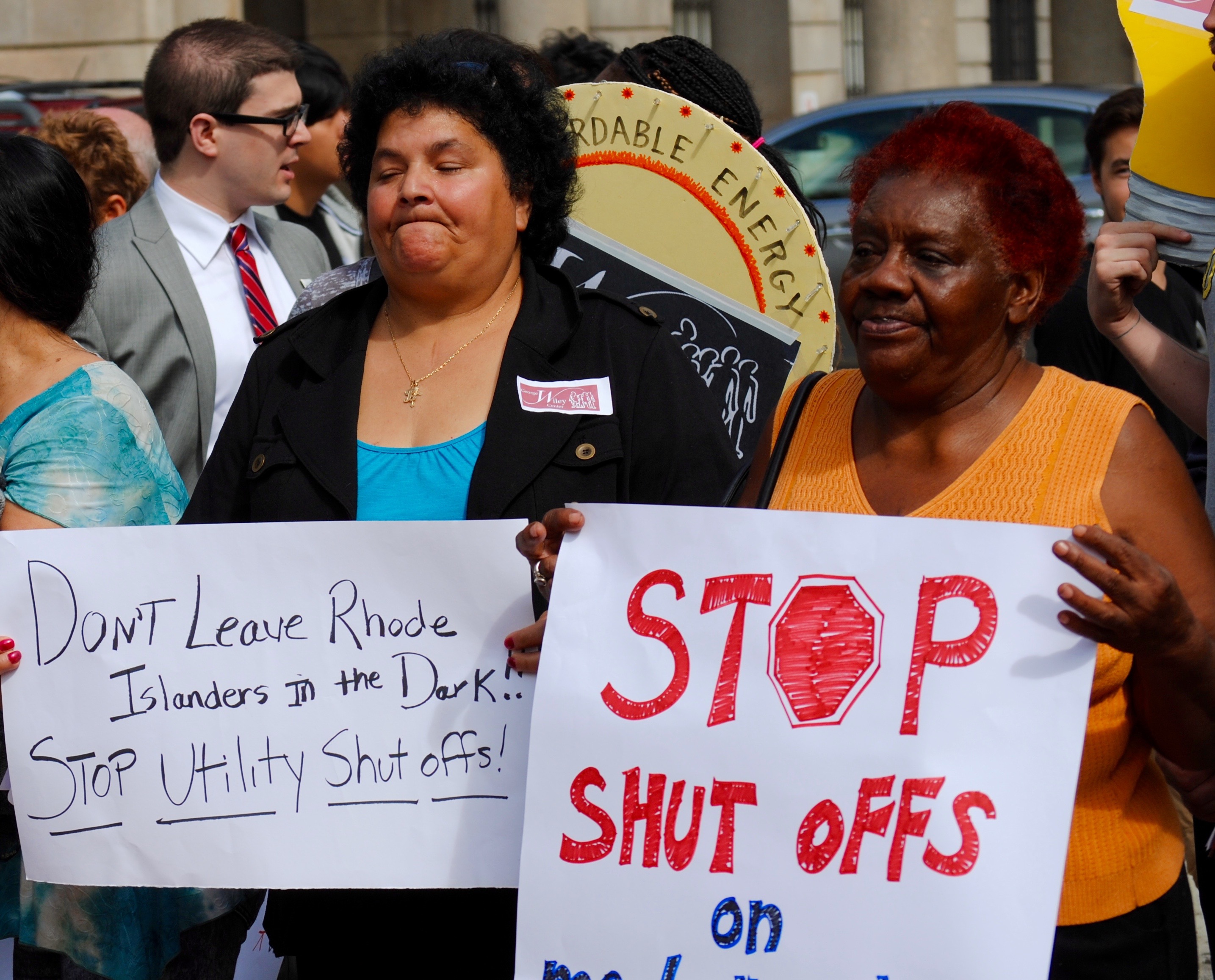
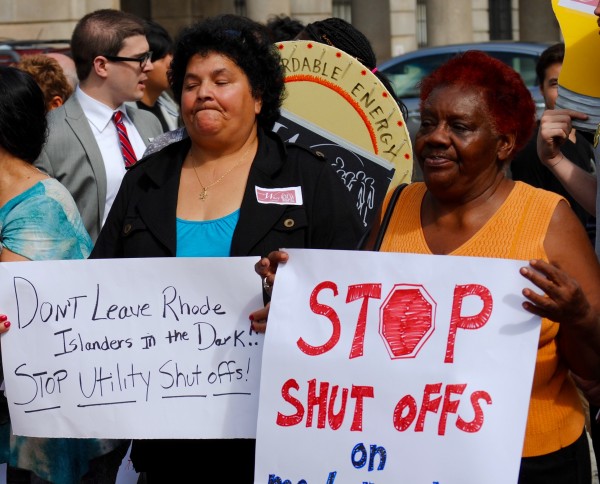 A heartbreaking video, The Lifeline Campaign, about National Grid’s seeming disregard for the law, has just been released on Vimeo. National Grid is being sued by the RI Center for Justice because they routinely shut off the electricity of seriously ill and disabled customers with past due bills, despite the presence of a doctor’s note that says the patient’s life will be imperiled if they lose service. This is against Rhode Island law.
A heartbreaking video, The Lifeline Campaign, about National Grid’s seeming disregard for the law, has just been released on Vimeo. National Grid is being sued by the RI Center for Justice because they routinely shut off the electricity of seriously ill and disabled customers with past due bills, despite the presence of a doctor’s note that says the patient’s life will be imperiled if they lose service. This is against Rhode Island law.

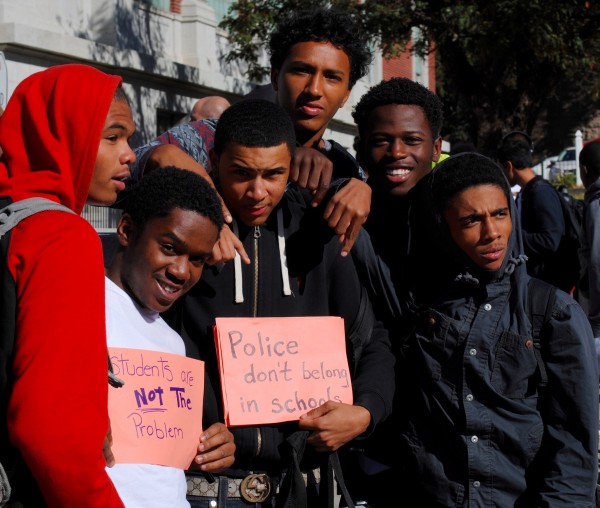 The public interest in both the incident and subsequent investigation is clear, the groups stated, pointing to the extensive media coverage of the incident, the subsequent student protests, and the important policy issues the incident raised. In requesting the release of the documents, the groups noted that in August the State Police voluntarily released a detailed report into the Cranston Police Department and its “Ticketgate” scandal.
The public interest in both the incident and subsequent investigation is clear, the groups stated, pointing to the extensive media coverage of the incident, the subsequent student protests, and the important policy issues the incident raised. In requesting the release of the documents, the groups noted that in August the State Police voluntarily released a detailed report into the Cranston Police Department and its “Ticketgate” scandal.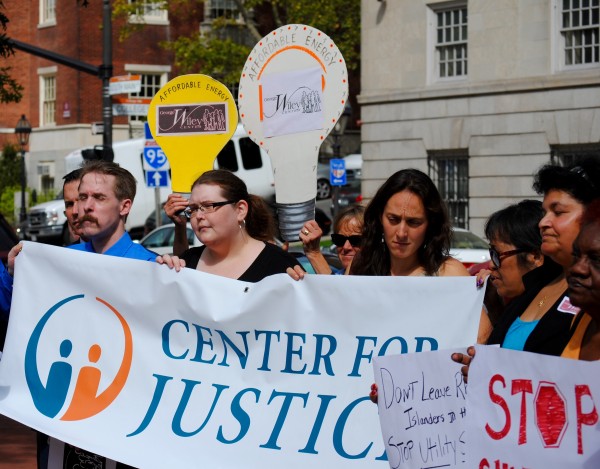 National Grid agreed to restore power to about two dozen homes this afternoon pending the resolution of a lawsuit.
National Grid agreed to restore power to about two dozen homes this afternoon pending the resolution of a lawsuit.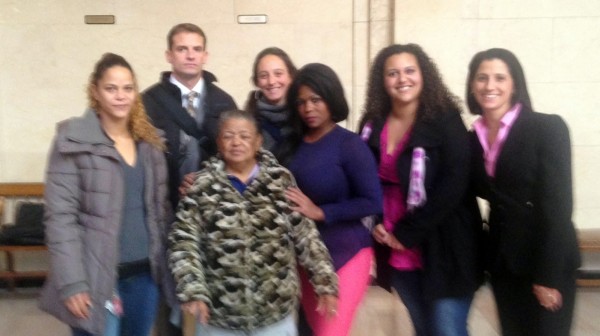
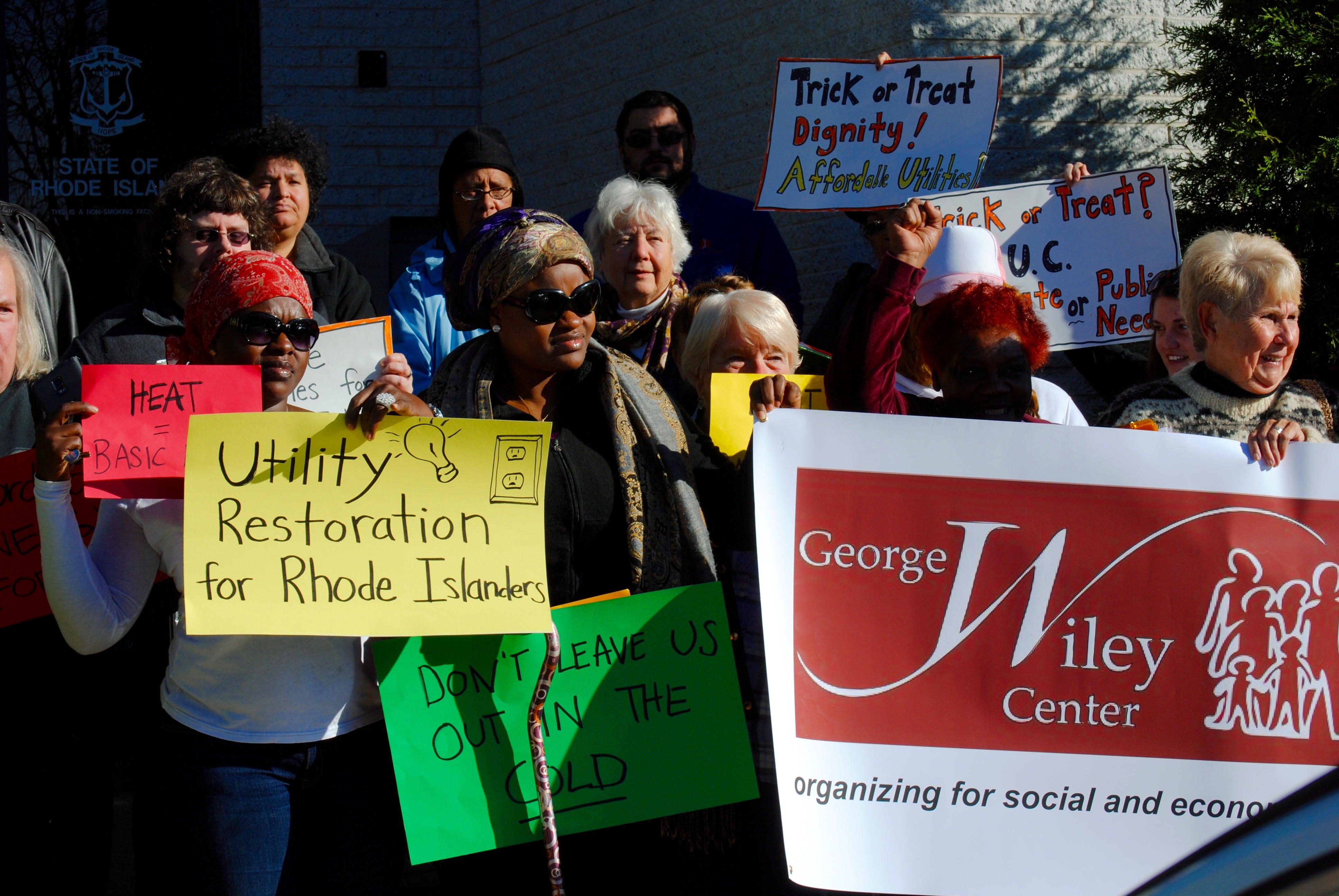
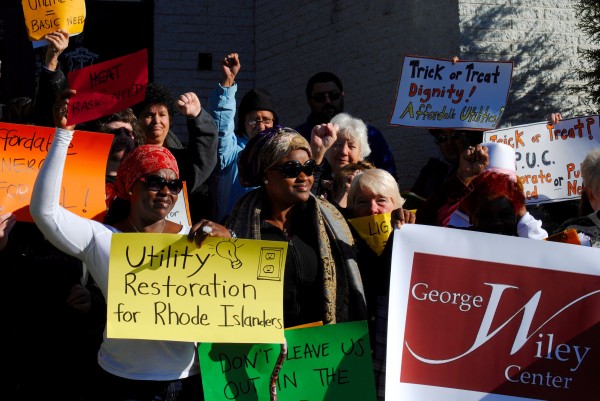 The Rhode Island Public Utilities Commission (RIPUC) today adopted “emergency regulations” designed to make it easier for those who have fallen behind on their payments to National Grid to restore power and heat to their homes. Margaret E Curran, chair of the board, lead fellow commissioners Paul J Roberti and Herbert F DeSimone Jr in an unanimous vote to allow people to get their power restored for a 15 percent payment of the total owed upfront plus the adoption of a regular payment plan. Currently that number can be 50 percent or higher.
The Rhode Island Public Utilities Commission (RIPUC) today adopted “emergency regulations” designed to make it easier for those who have fallen behind on their payments to National Grid to restore power and heat to their homes. Margaret E Curran, chair of the board, lead fellow commissioners Paul J Roberti and Herbert F DeSimone Jr in an unanimous vote to allow people to get their power restored for a 15 percent payment of the total owed upfront plus the adoption of a regular payment plan. Currently that number can be 50 percent or higher.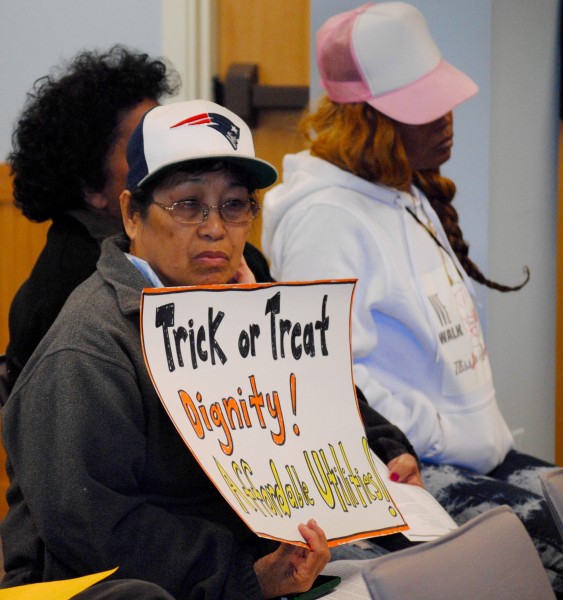 The
The 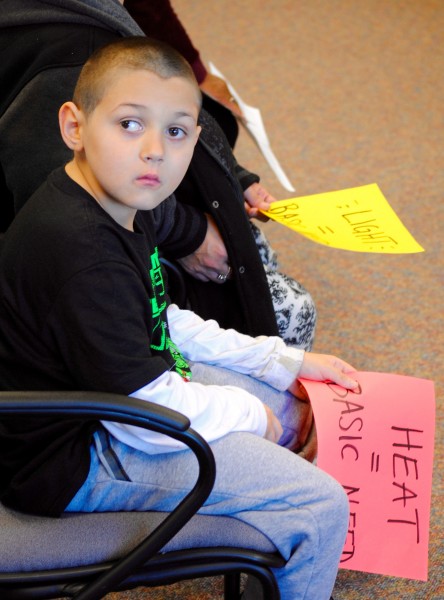 Over thirty people attended today’s RIPUC meeting a good crowd considering the last minute change in date and time of the meeting. Had the board met when originally planned, people would be that much closer to having their power restored. Though the board’s ruling came as a relief to many, to some it will have little effect. Anna told me that she has spent money she might have used to reinstate her gas heat to purchase electric space heaters. In order to have the money back on her debit card in time, she will have to return the space heaters today, wait for the money to be back on her card early next week, and make her payment then. This means that she and her children will be in a house with no heat all weekend.
Over thirty people attended today’s RIPUC meeting a good crowd considering the last minute change in date and time of the meeting. Had the board met when originally planned, people would be that much closer to having their power restored. Though the board’s ruling came as a relief to many, to some it will have little effect. Anna told me that she has spent money she might have used to reinstate her gas heat to purchase electric space heaters. In order to have the money back on her debit card in time, she will have to return the space heaters today, wait for the money to be back on her card early next week, and make her payment then. This means that she and her children will be in a house with no heat all weekend.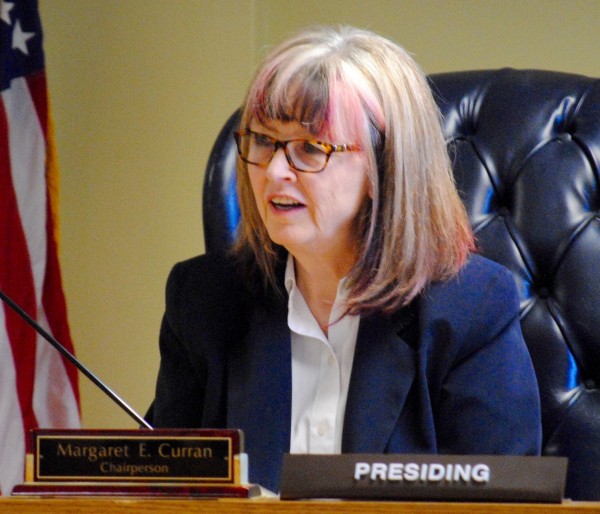
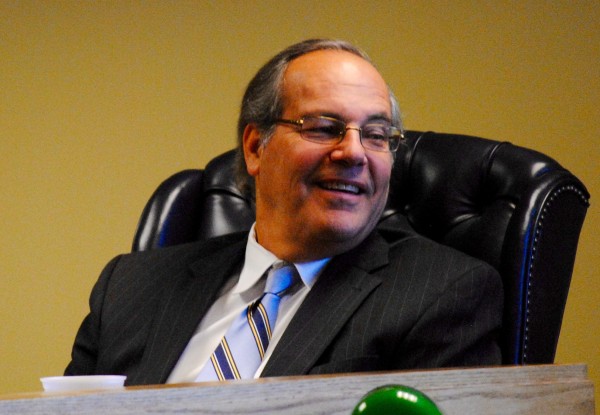
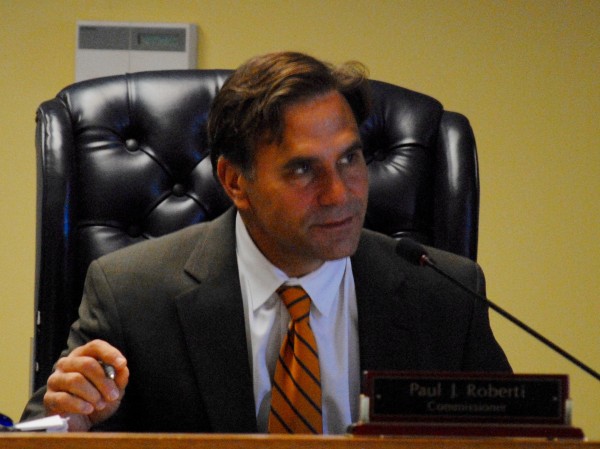
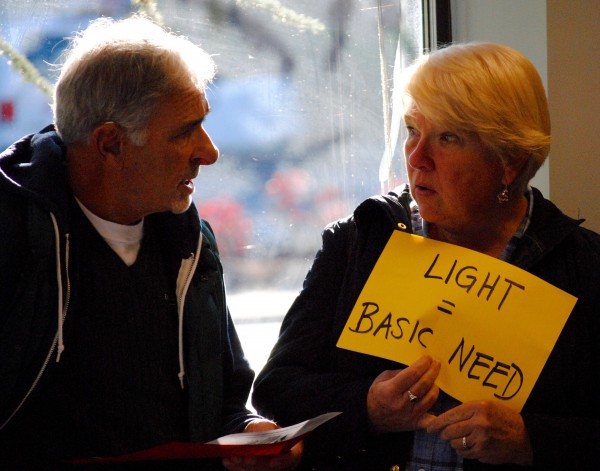
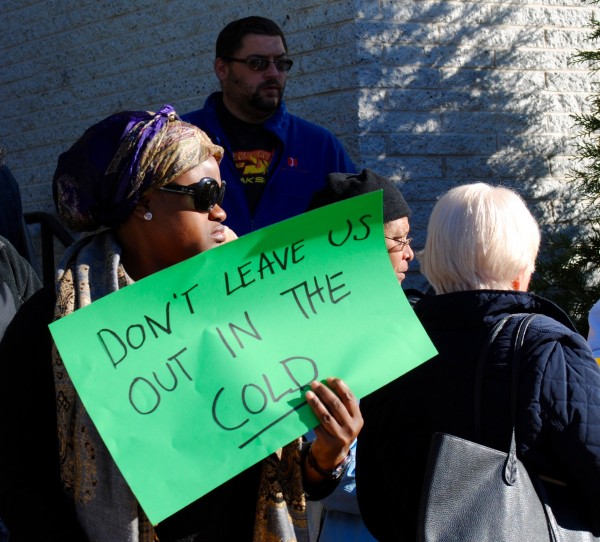
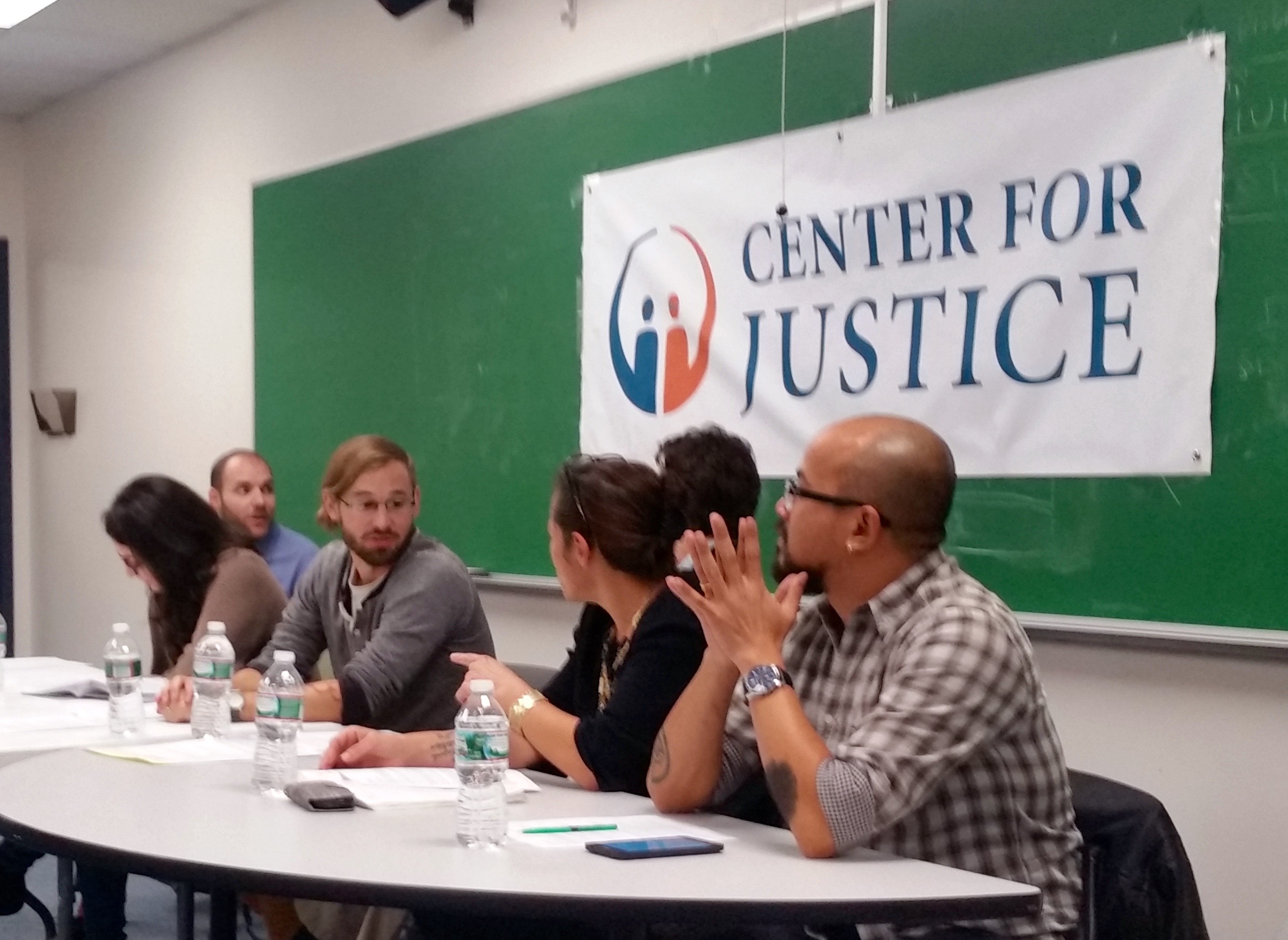
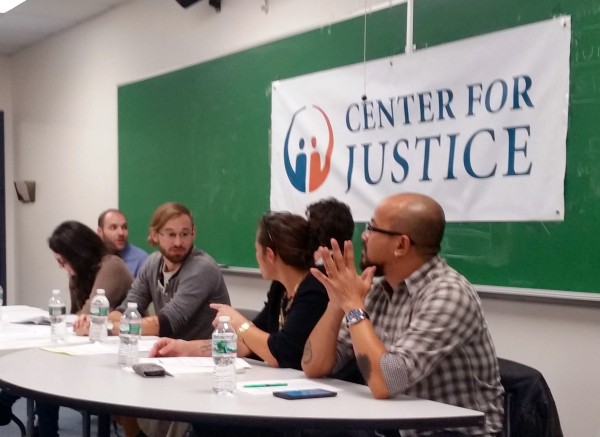 It was a packed house at the RI Center for Justice as Executive Director Robert McCreanor lead a discussion about the collaborative work of community organizers and public interest lawyers in the area of social justice. On the panel were organizers and lawyers who work with DARE (Direct Action for Rights and Equality) and PrYSM (Providence Youth Student Movement) in Providence, and MFY’s Housing Project, the Three-Quarter House Tenant Organizing Project (TOP) in New York City.
It was a packed house at the RI Center for Justice as Executive Director Robert McCreanor lead a discussion about the collaborative work of community organizers and public interest lawyers in the area of social justice. On the panel were organizers and lawyers who work with DARE (Direct Action for Rights and Equality) and PrYSM (Providence Youth Student Movement) in Providence, and MFY’s Housing Project, the Three-Quarter House Tenant Organizing Project (TOP) in New York City.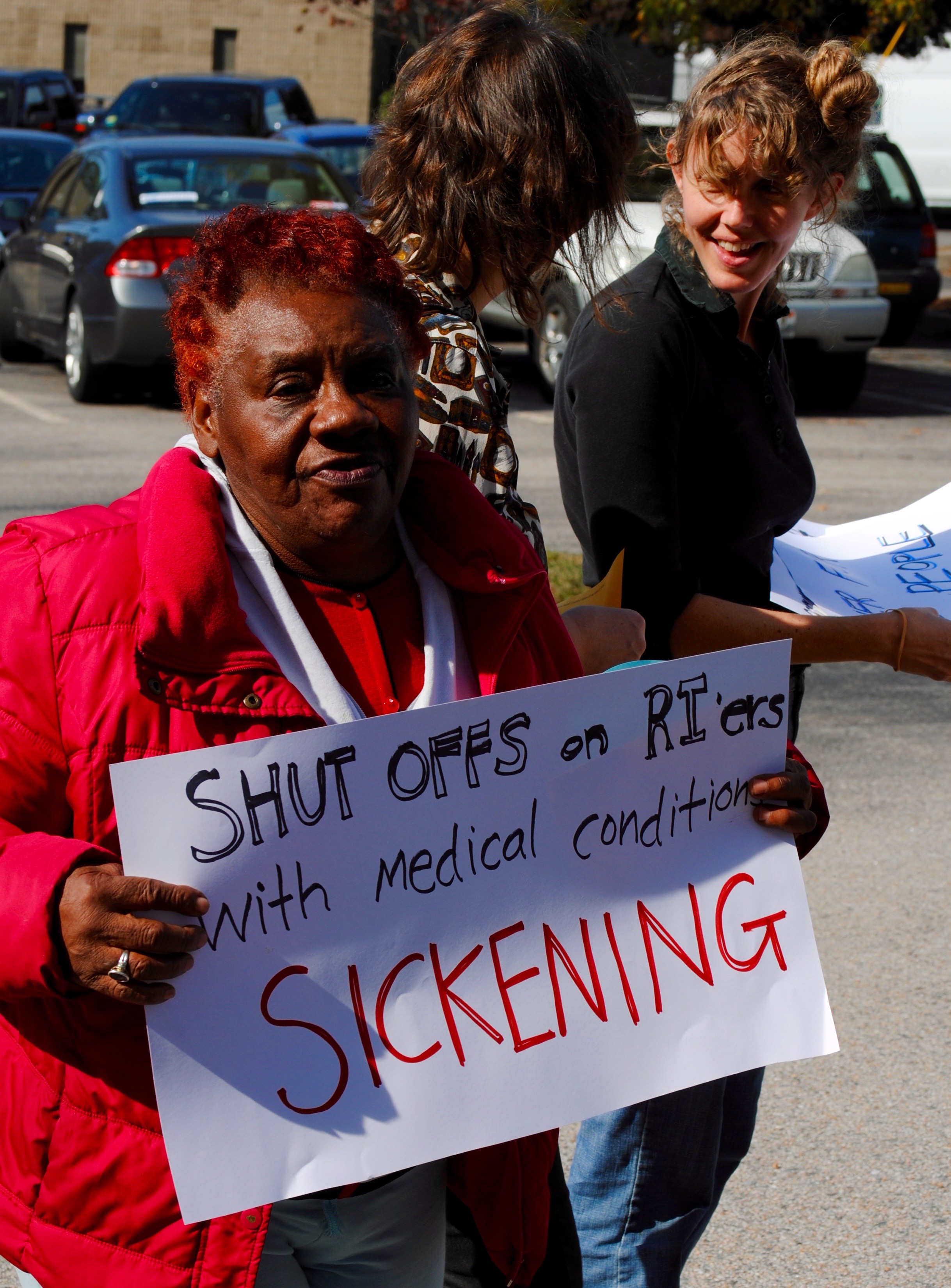
 More than 30 people entered the RI Public Utilities Commission (PUC) yesterday to demand an end to the epidemic of unfair utility shut-offs. Many in attendance have been victims of these shut-offs, even though they complied with the law and produced letters from their doctors indicating that their health would be seriously compromised by shut-offs. The protest was lead by the
More than 30 people entered the RI Public Utilities Commission (PUC) yesterday to demand an end to the epidemic of unfair utility shut-offs. Many in attendance have been victims of these shut-offs, even though they complied with the law and produced letters from their doctors indicating that their health would be seriously compromised by shut-offs. The protest was lead by the 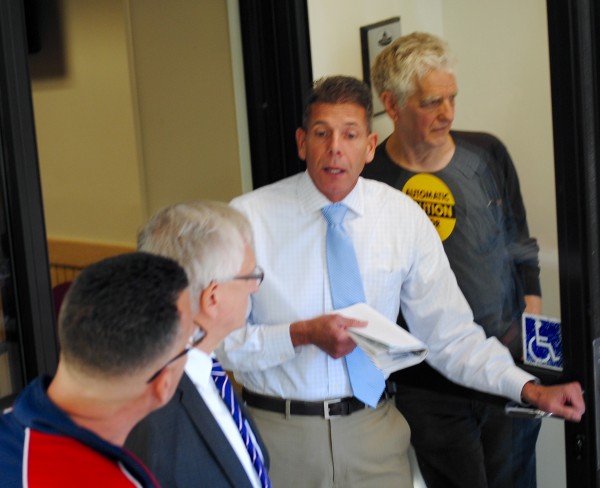 According to a George Wiley Center press release, “Every year tens of thousands of households in Rhode Island experience the stress of utility service termination due to unaffordable bills. It is shocking that in many of these homes live people struggling with medical conditions. This injustice is due to a loophole that allows the state’s Division of Public Utilities to grant National Grid permission to shut off households, even when their medical status is on file.”
According to a George Wiley Center press release, “Every year tens of thousands of households in Rhode Island experience the stress of utility service termination due to unaffordable bills. It is shocking that in many of these homes live people struggling with medical conditions. This injustice is due to a loophole that allows the state’s Division of Public Utilities to grant National Grid permission to shut off households, even when their medical status is on file.”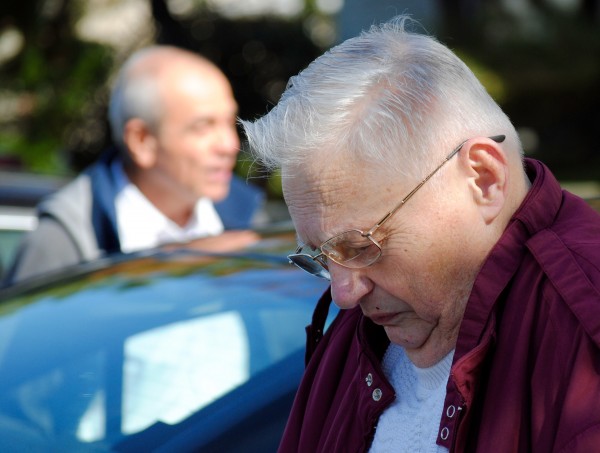
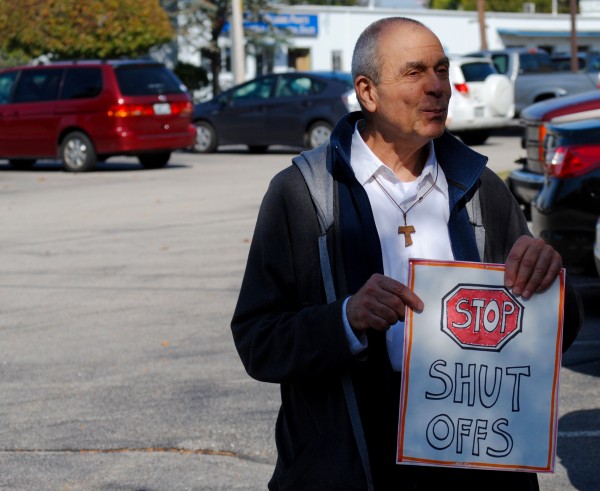
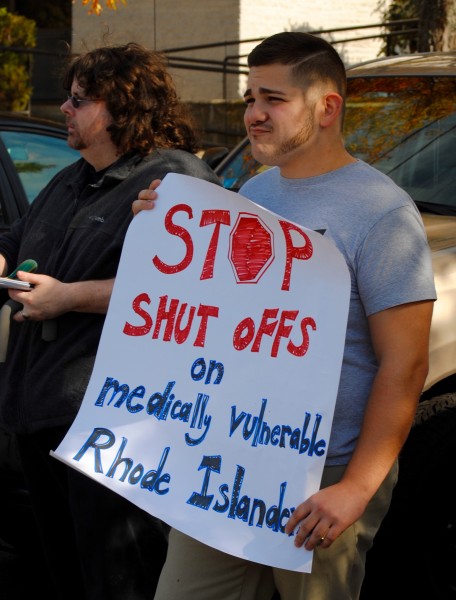
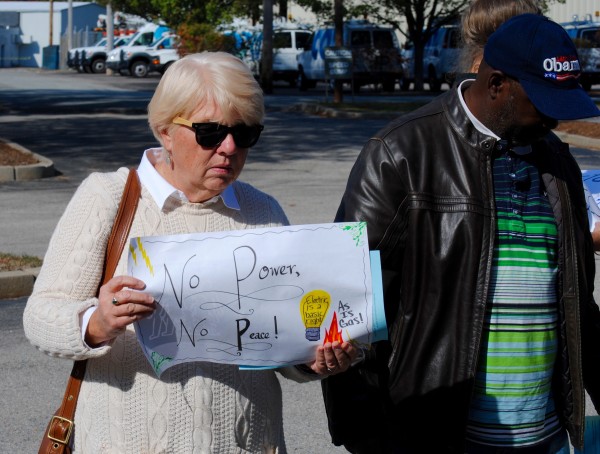
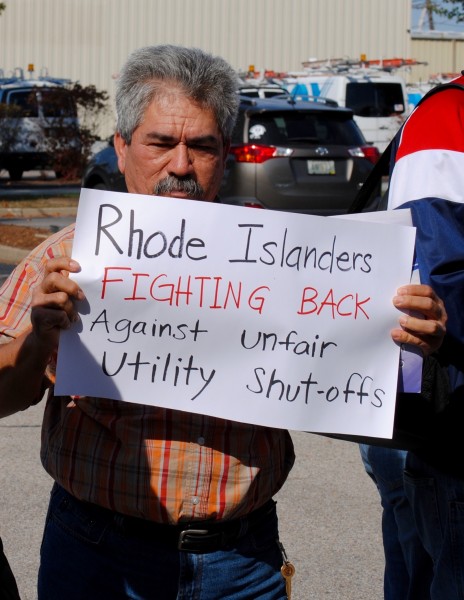

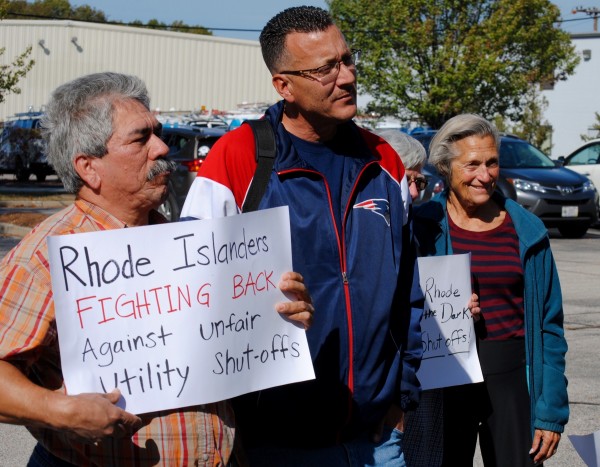


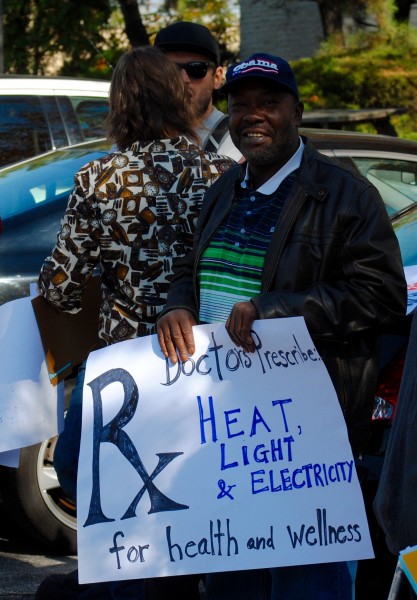
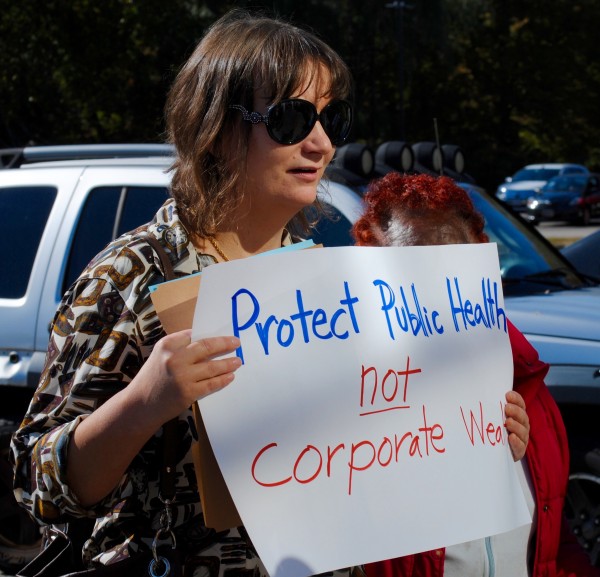
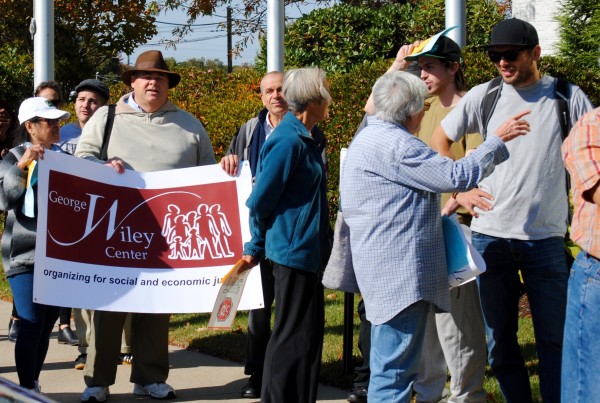
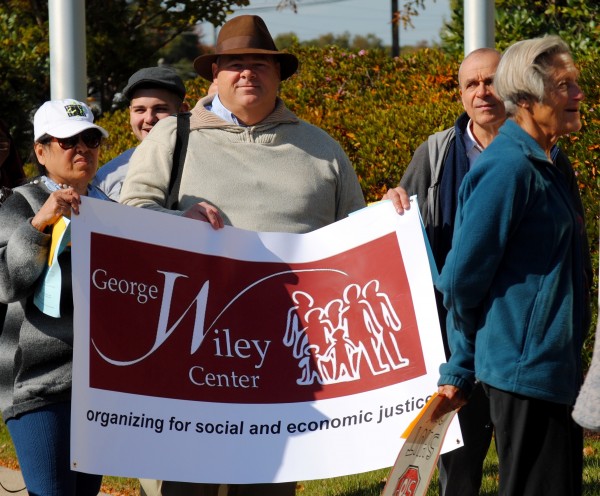
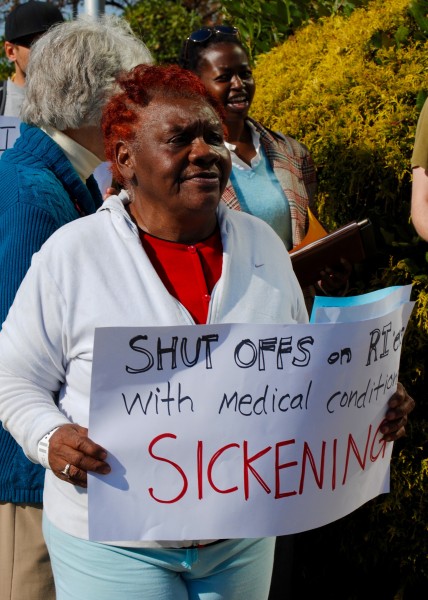
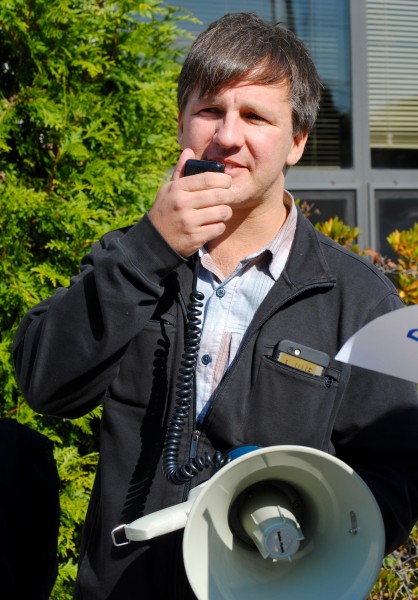

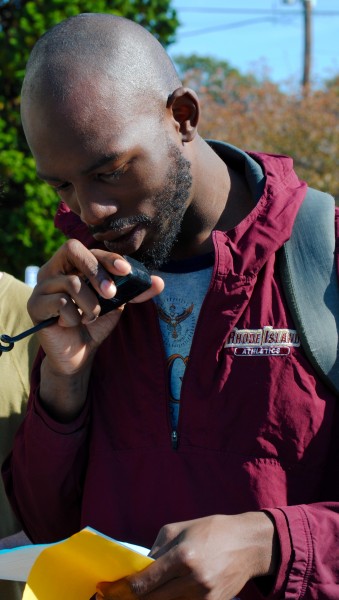
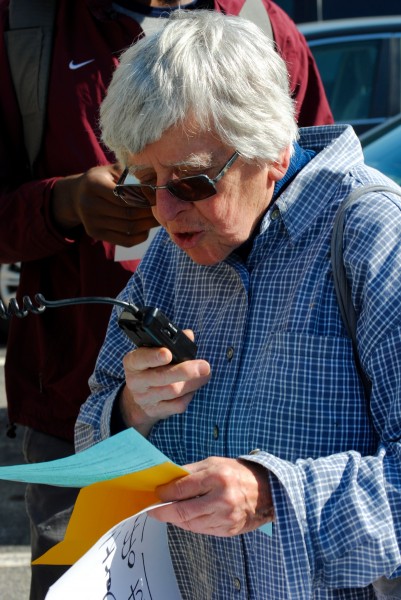
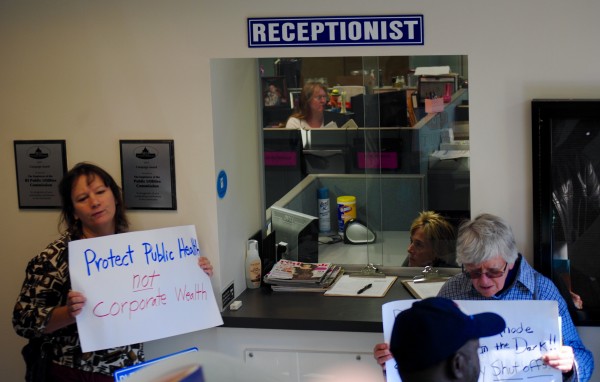
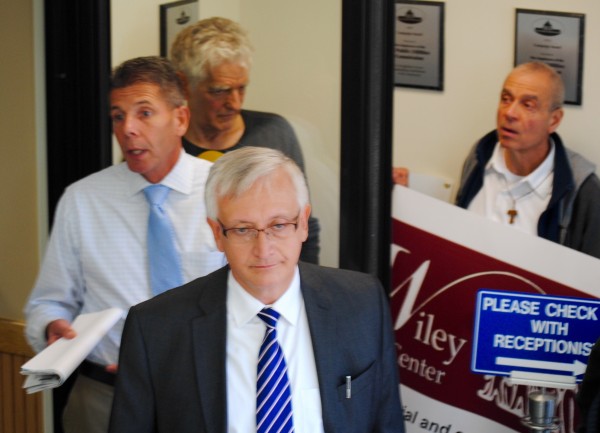
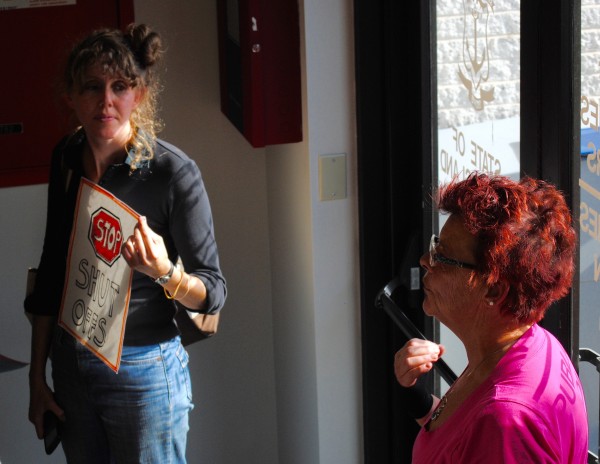
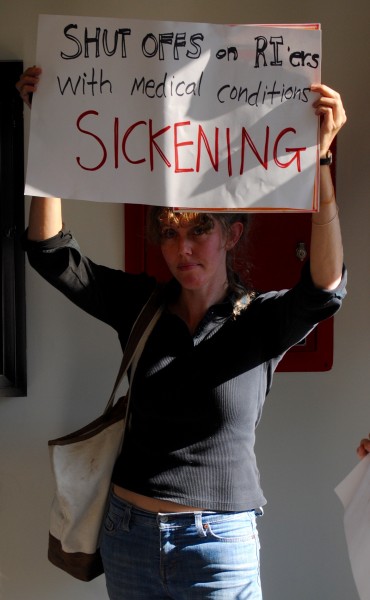
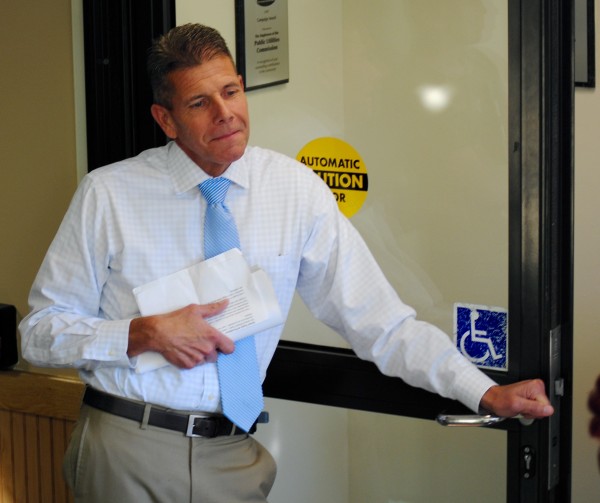
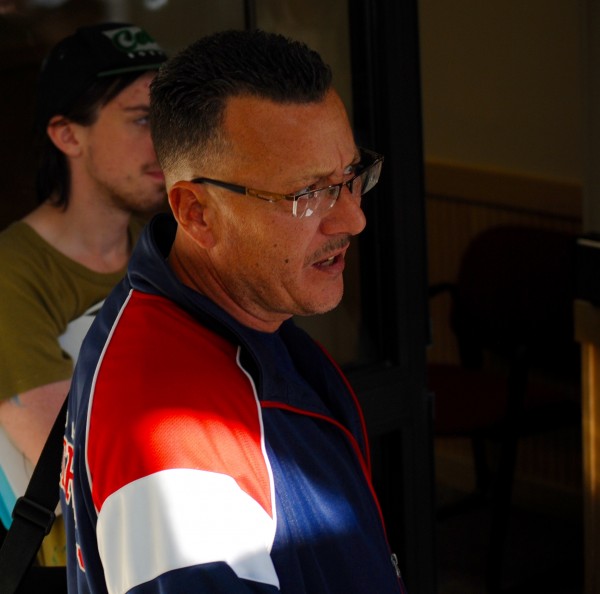

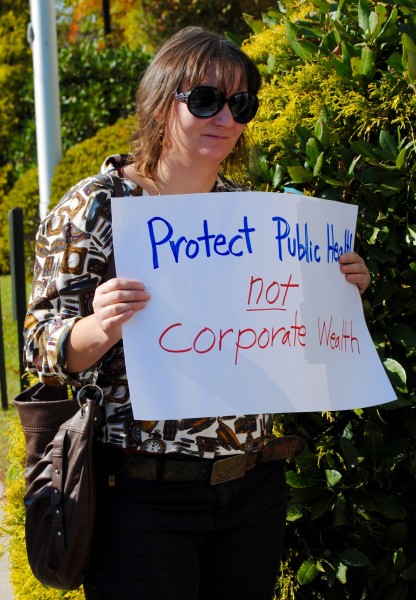
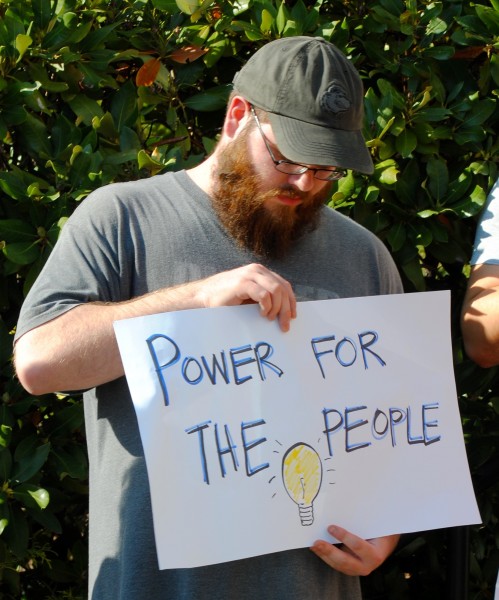
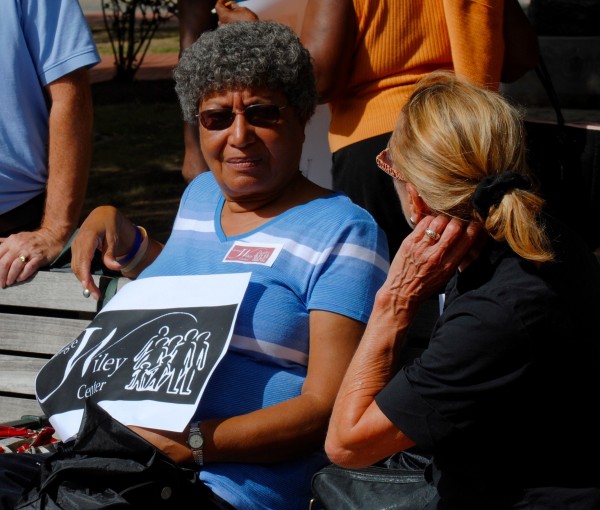
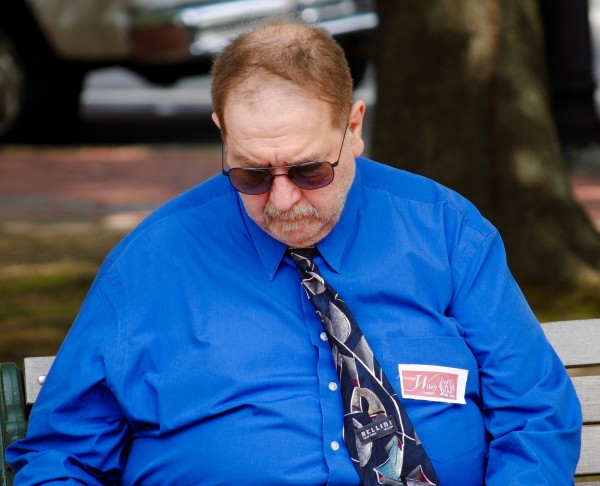
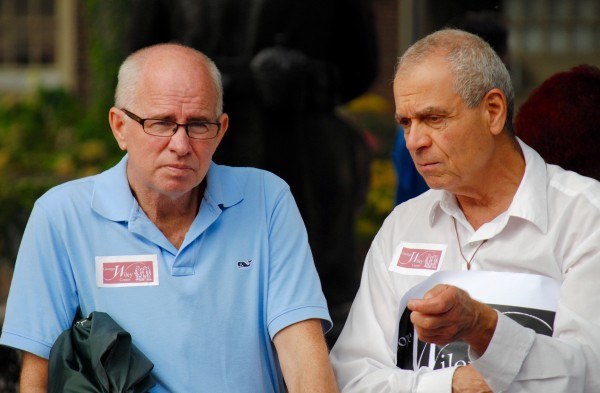
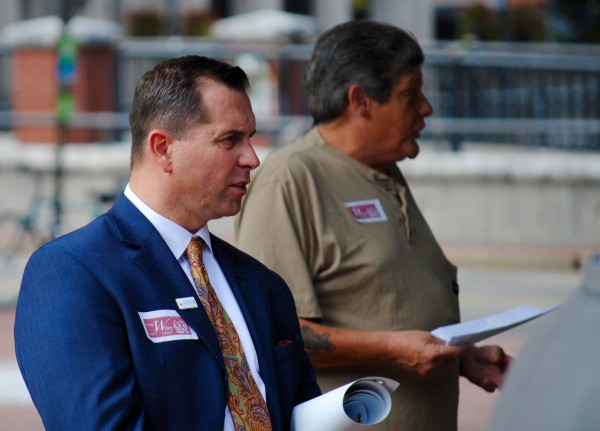
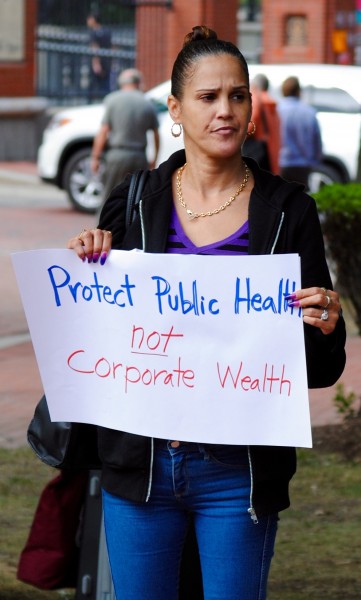
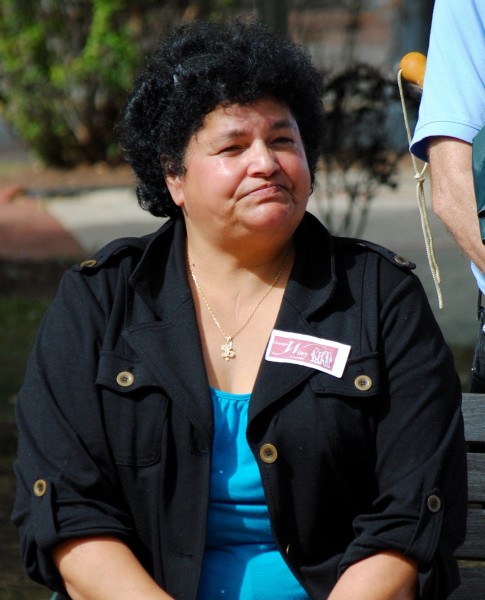
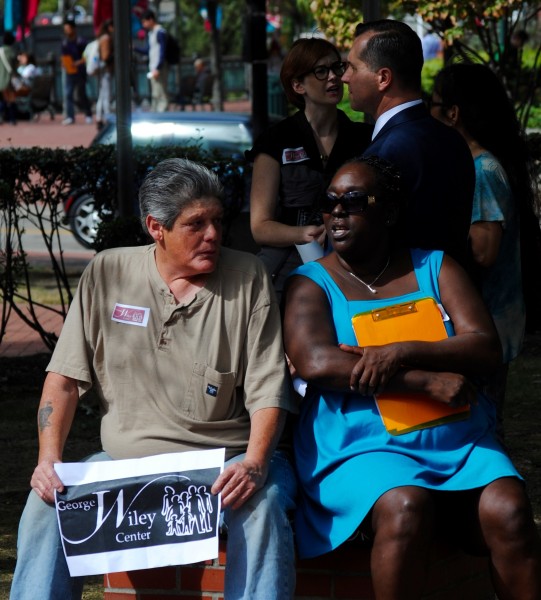
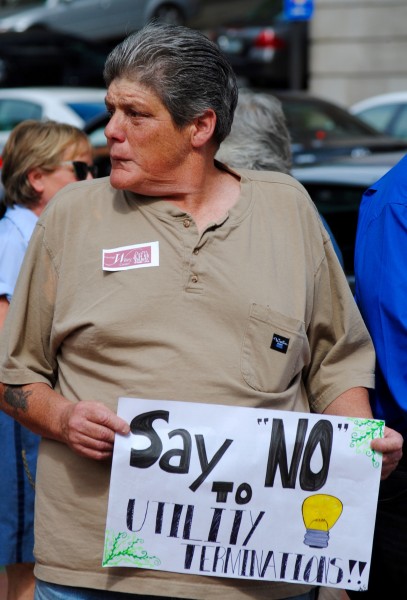
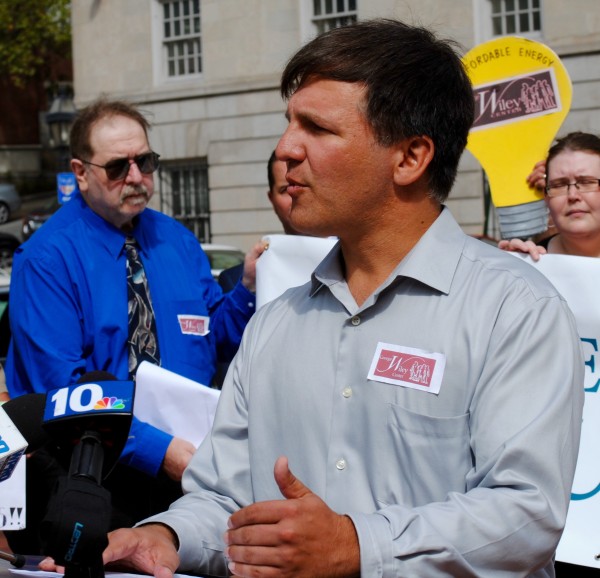
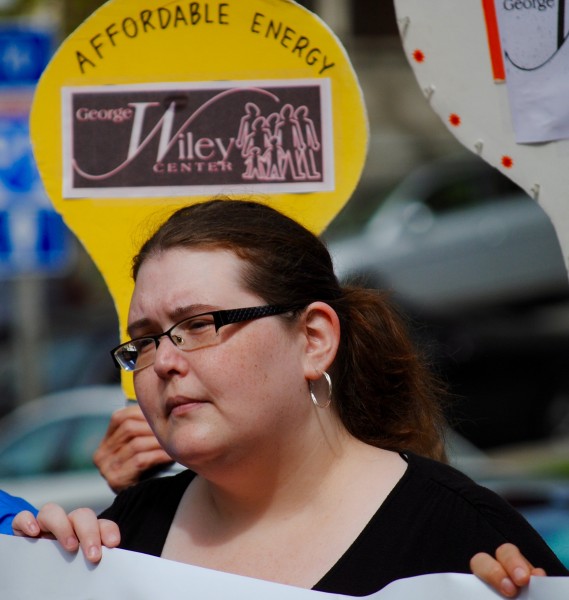
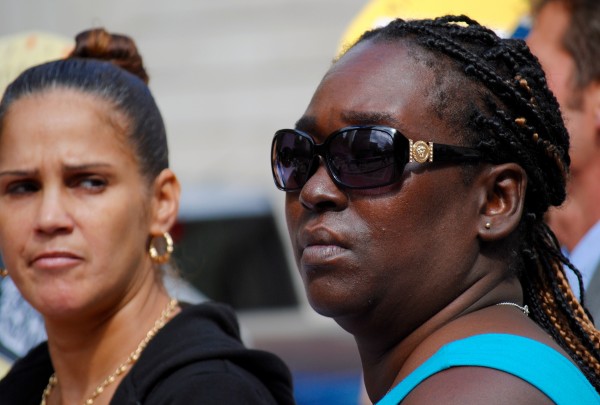
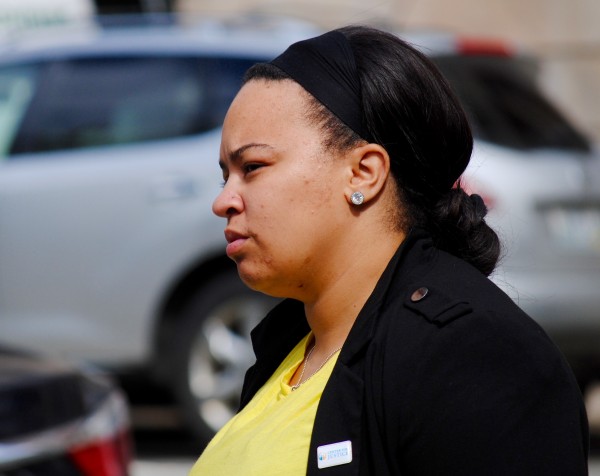
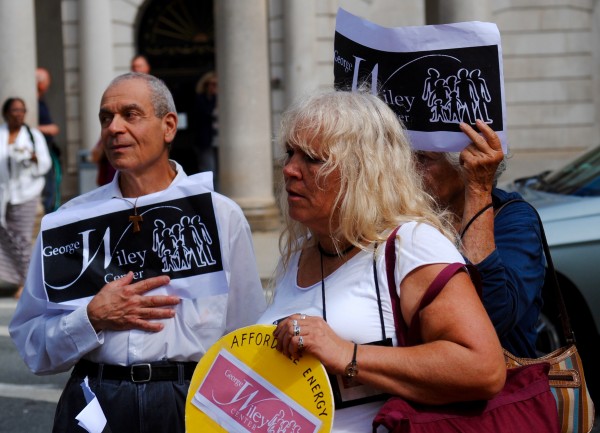
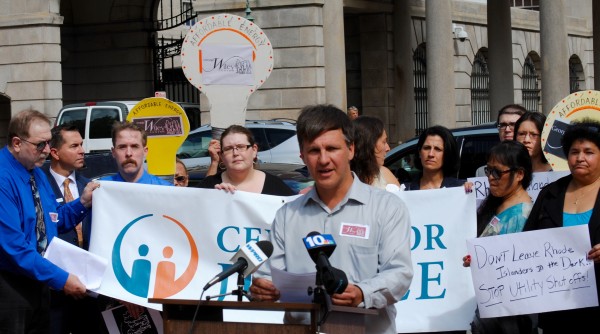
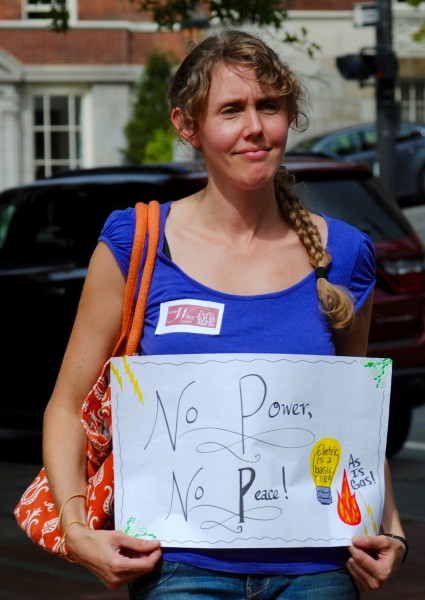

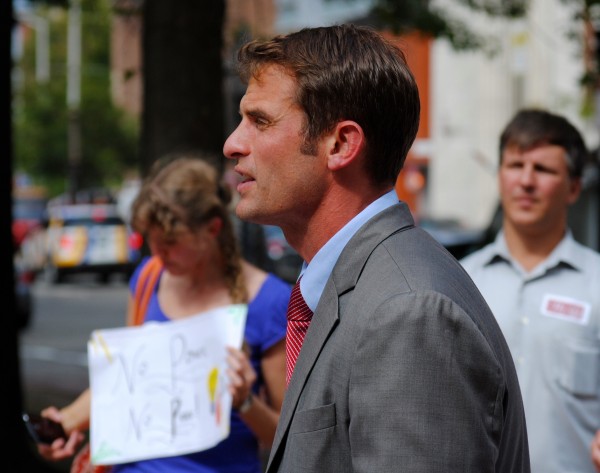
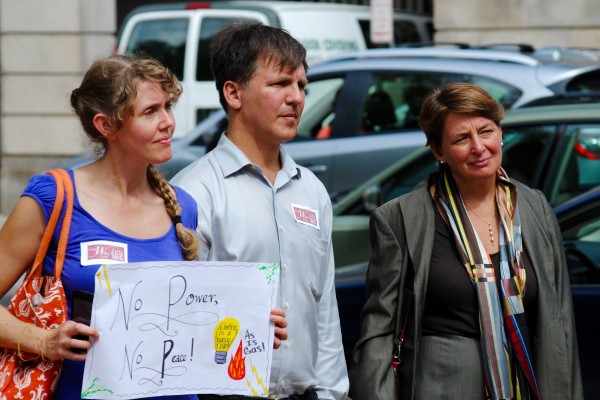
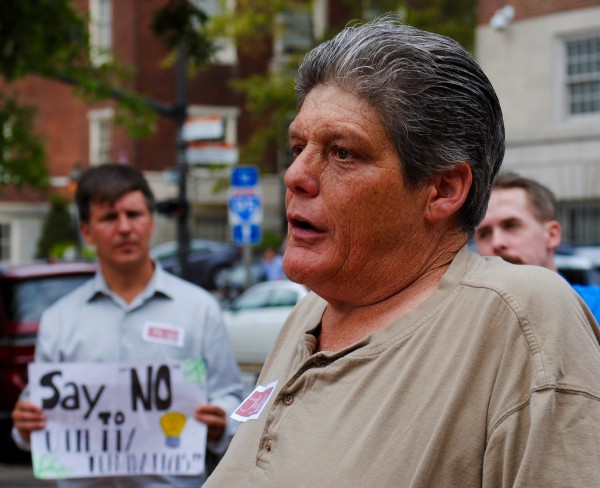
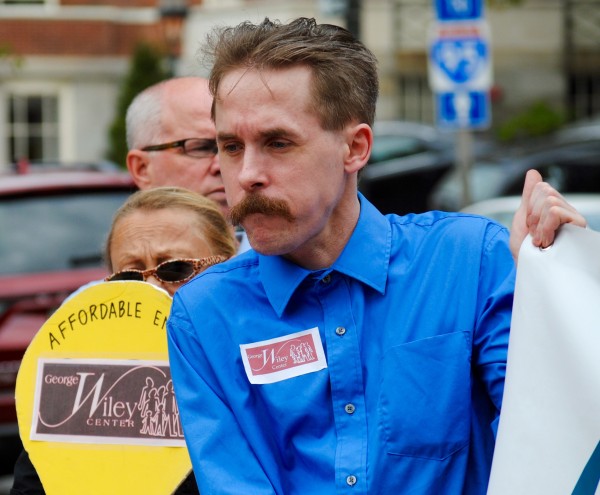
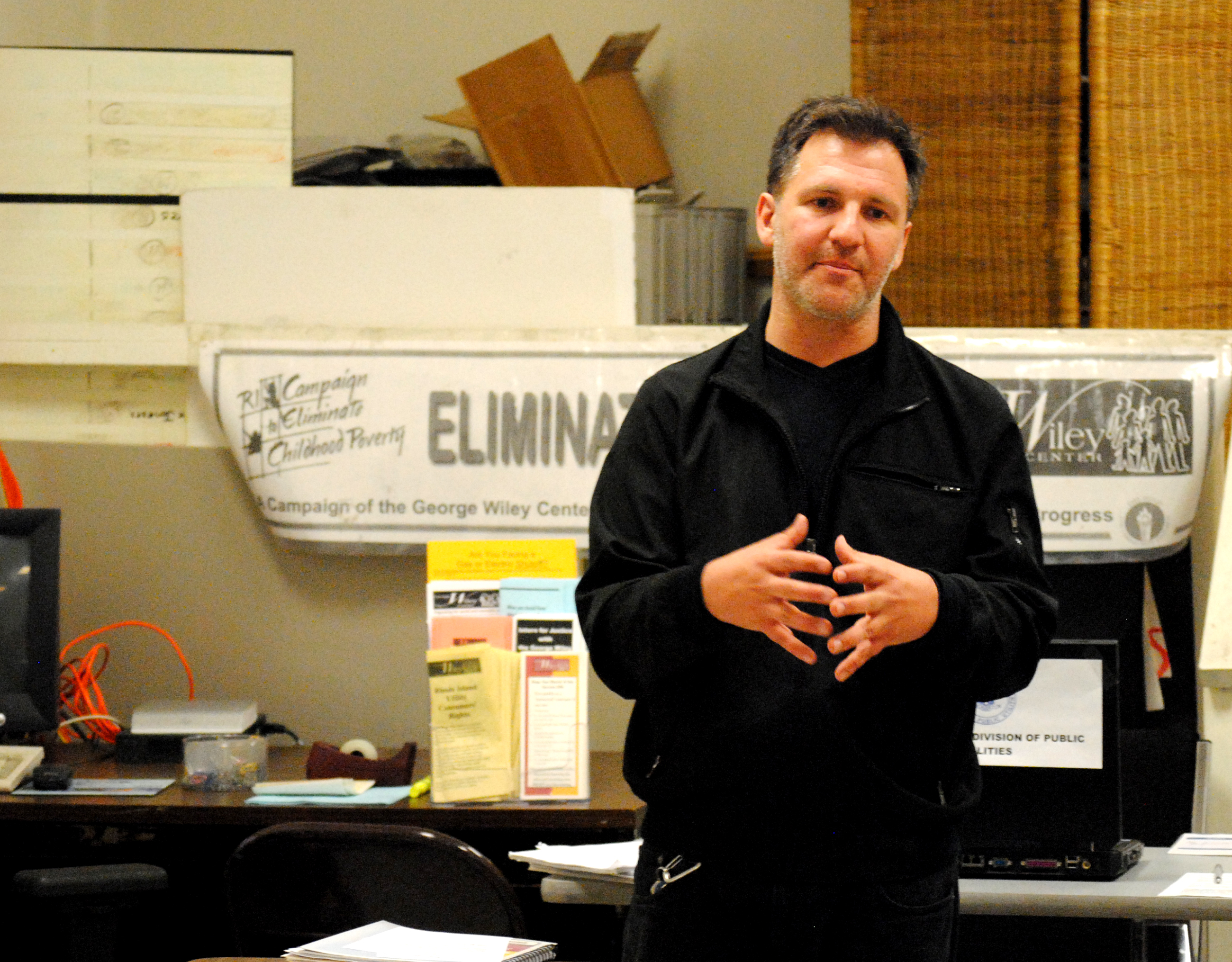
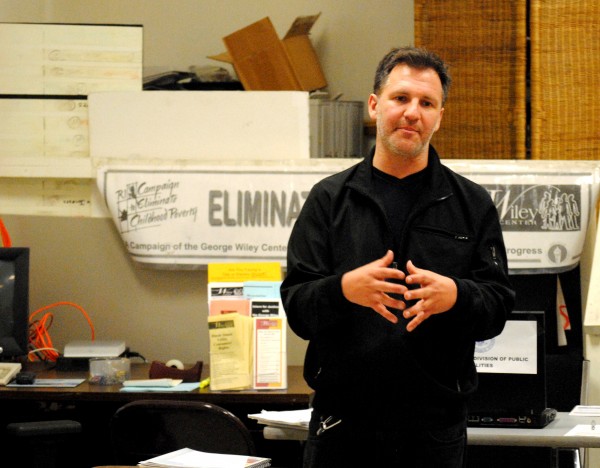
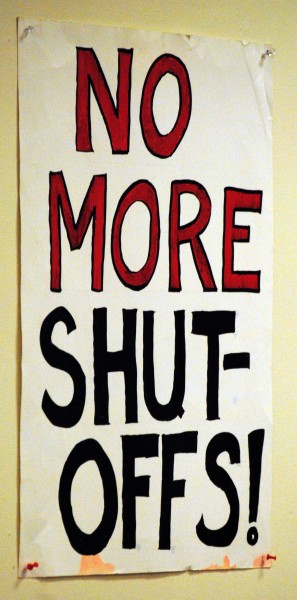 Further, if a customer is seriously ill, or if there is an infant in the home under the age of 24 months, you have the “right to protection” from a utility shut-off. “A lot of people with medical conditions get shut off in the summer time,” noted Viveiros, “A lot of Rhode Islanders would be shocked by that.”
Further, if a customer is seriously ill, or if there is an infant in the home under the age of 24 months, you have the “right to protection” from a utility shut-off. “A lot of people with medical conditions get shut off in the summer time,” noted Viveiros, “A lot of Rhode Islanders would be shocked by that.”